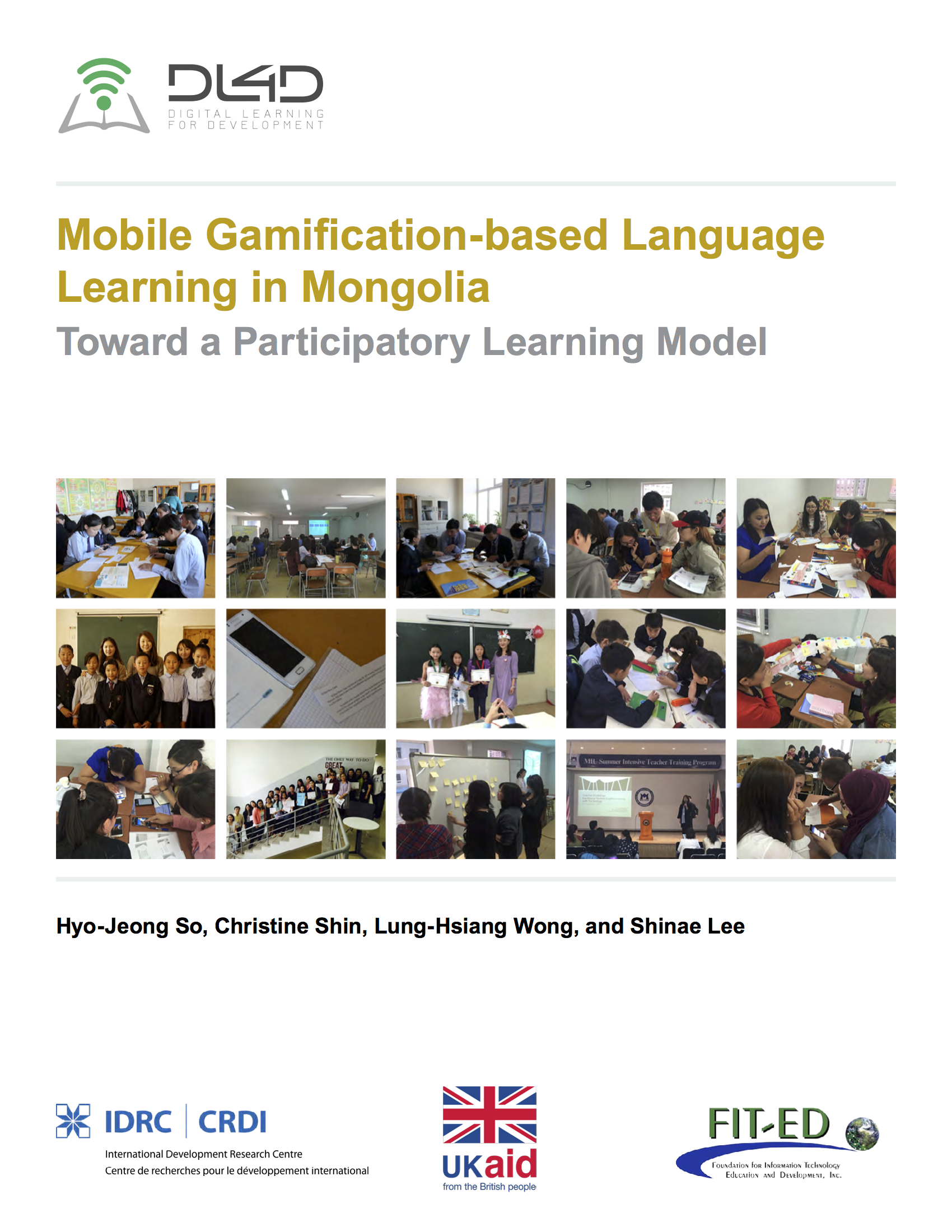Mobile Gamification-based Language Learning in Mongolia: Toward a Participatory Learning Model
Abstract
Mobile Gamification-based Language Learning in Mongolia: Toward a Participatory Learning Model
Mobile Gamification-based Language Learning in Mongolia: Toward a Participatory Learning Model

The researchers aimed to design and implement a participatory model of mobile-assisted language learning (MALL) in order to enhance English education experience in public schools in Mongolia. In particular, the researchers sought to examine three research questions concerning the implementation of digital learning innovations in developing contexts or resource-poor areas: (a) localization and customization, (b) quality and equity, and (c) sustainability. The whole implementation progressed through the following three phases: Phase 1 – baseline study, Phase 2 – teacher professional development, and Phase 3 – intervention implementation. The main research intervention took place in the three public high schools in Ulaanbaatar with three teachers (two 10th-grade and one 6th-grade teachers) and their students (N=67). The proposed solution for digital learning focuses on the integration of gamification (i.e., use of game-related elements in non-game contexts), social media, and mobile devices to design and implement a participatory style language-learning model. The researchers collected multiple sources of data such as the student perception survey, English proficiency test, and interviews with students and teachers. Overall, the results indicate that the digital learning solution made positive impacts on both the cognitive and affective dimensions. The test results provide the empirical support that the students who participated in the main research intervention were able to improve their English competency, especially in reading. In addition, the teachers’ pedagogical approaches showed a shift from contentcentered to participation-centered methods. In conclusion, this study demonstrates that the potential of adopting and sustaining digital learning innovations in Mongolian public schools can be enhanced (a) when the solution leverages the existing resources and cultural practices, and (b) when continuous efforts are made for building local teachers’ pedagogical knowledge and skills.

